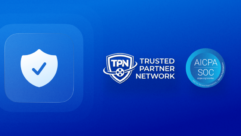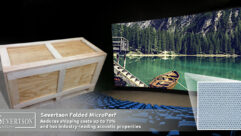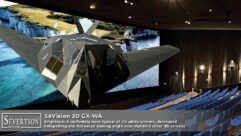AV Industry Certifications
Although certifications are available for both pro AV and related low-voltage industries, we need to educate our potential clients about their existence, meaning, and value.
THERE HAS been more talk in the industry recently about certification of pro AV integrators and consultants (or the lack thereof). For years, the two major AV organizations, the International Communications Industries Association (ICIA) and the National Systems Contractors Association (NSCA), have offered education and certification programs to help AV providers hone their skills and to help our clients better evaluate who is truly qualified for pro AV projects. We’ve made a lot of progress in the past decade or so, but there’s still room for improvement. Although architects, engineers, and facility owners are now more aware of what AV pros do and when they need us, most still don’t understand the AV design and integration process and how it fits into the overall building design and construction process. On top of that, many of the people who need our services don’t know how to evaluate the individuals and companies they’re seeking.
The easiest way for potential clients to evaluate AV service providers is to verify their credentials. For example, certified architects and engineers and/or their firms must be registered to practice, and facility owners are familiar with these certifications and registrations. However, when it comes to AV, this awareness is not nearly as pervasive.
Four easy steps
One of the problems the AV industry has faced is that while the available certifications are well promoted within our own industry, many architects, engineers, facility owners, and end-users don’t know what our certifications are or what they mean. Although the major AV associations are working hard to change this, it’s a big, multifaceted task.
Here are the four major steps that need to be taken to establish meaningful and useful AV certification:
- Identify the certification and its basis. What is it called? What are the requirements? What’s the test? How is it maintained?
- Create and/or identify educational opportunities for achieving the certification. (The AV associations have done and continue to do this very well.)
- Create awareness within the AV industry of the certification’s existence, meaning, and value. (ICIA’s AVolution campaign is a good example of this.)
- Educate our potential clients about the certification’s existence, meaning, and value. Though some efforts exist (such as ICIA’s AVolution campaign and NSCA’s Building Connections initiative), we still need to do a much better job of spreading the word to architects, engineers, and building owners.
This last item is the key to the entire process. Both ICIA and NSCA continue to work with the building community to recognize and understand AV and other low-voltage trades, but it takes time. Becoming appropriately certified, promoting the certifications to our clients, and providing quality work are the best ways that we can establish our certifications.
Which acronym is right for you?
ICIA and NSCA have made progress in establishing useful AV certifications for AV pros, but they can often be confusing for our clients. ICIA currently offers a range of certifications:
CTS — Certified Technical Specialist General Certification
CTS-D — Certified Technical Specialist in AV Design
CTS-I — Certified Technical Specialist in AV Installation
CTS-R — Certified Technical Specialist in AV Rental & Staging
CTS-S — Certified Technical Specialist in AV Sales
NSCA currently offers three certifications:
C-SI — Certified Systems Installer
C-EST — Certified Electronic Systems Technician
R-ESI — Registered Electronic Systems Integrator
All of these certifications are for individuals, rather than companies. The NSCA certifications are primarily targeted toward installers and integrators incorporating a range of low-voltage specialties beyond pure pro AV, such as fire alarm, paging, and security, while the ICIA certifications have more subspecialty options for particular roles within pro AV, such as the separate design and installation certifications.
Currently only one AV-oriented company certification exists, ICIA’s Certified Audio Visual Solutions Provider (CAVSP) certification, which is awarded based on the percentage of a company’s in-house CTS specialists.
Which one is right for you? If you’re a pro AV provider, the CTS-D and CTS-I might be best because they’re specific to pro AV and create the basis for the CAVSP company certification. If you’re an end-customer looking for a pro AV provider, look for CTS and CAVSP certifications. If you’re a multi-disciplined low-voltage contractor, the C-SI, C-EST, and R-ESI are good certifications.
But wait, there’s more
However, there are a few credentials that are more familiar to potential clients. The “Professional Engineer” (PE) license is primarily used for mechanical, civil, electrical, structural, plumbing, and other essential building industry trades with life safety concerns. AV firms sometimes employ PEs in mechanical, electrical, and acoustical engineering, which aren’t AV-specific. PE licensure allows firms to use the term “engineer” in their company names and be listed in various engineering resources. The Registered Communications Distribution Designer (RCDD) certification, which is issued by Building Industry Consulting Service International (BICSI), is targeted toward data network and communications professionals, although this is becoming an essential aspect of AV work. The ISO 9001:2000 certification is based on standards developed by the International Organization for Standardization (ISO). While not AV-specific, it’s a well-recognized certification that acknowledges attention to management and quality control performance within a company.
Moving on
The recent increase in applications for certifications and enrollments in the educational programs that support them suggest that the pro AV industry is becoming more aware of the certifications that are available. However, there still seems to be some resistance on the part of AV providers who fear that while individual certification may improve their employees’ performance and value to their firm, it may also increase their employees’ value to other competing AV providers.
But I think we’re getting closer to a critical mass within the AV industry where it’s becoming much more necessary for individuals and firms to have some sort of certification to remain competitive. The next step is to educate buyers of AV services about what all of the different certifications mean. ICIA will address this in a book that will be published this summer. InfoComm and NSCA also offer educational opportunities on the AV project process for AV and other building industry professionals that go beyond the technical side of pro AV.
Ultimately, it takes more than a few capital letters after a name to ensure good experience, expertise, and judgment when evaluating an AV firm that will design and install a system. But the more we can establish solid certifications that mean something to the rest of the building industry, the easier it will be for our clients to make wise and informed choices in selecting pro AV design and integration services.
Tim Cape is a contributing editor for Pro AV and the principal consultant for Atlanta-based technology consulting firm Technitect LLC. He’s an instructor for the ICIA Audiovisual Design School and an active member of the consultant’s councils for both ICIA and NSCA. Contact him at [email protected].










